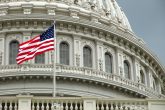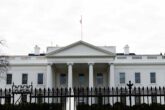May 20, 2019
Trump’s Preference for Acting Officials Puts National Security at Risk
President Trump recently announced that his intended nominee for secretary of defense will be Patrick Shanahan, who became—way back in March—America’s longest-serving acting secretary of defense. It’s tempting to think that finally having a nomination for this critical position will end worries over the effects of having a long-term acting secretary of defense, alongside an acting secretary of homeland security and, previously, an acting attorney general and acting secretary of the interior. But Shanahan’s nomination doesn’t mark the end of this concern. To the contrary, there’s real reason to worry about Trump’s stated preference for acting secretaries, as acting cabinet members and other senior officials are less likely to speak truth to power—especially while serving a president who demands unquestioning “loyalty.”Auditioning for a job may not be the best way to do that job, and the policies that an acting secretary like Shanahan indulged while seeking a nomination can endure long after the period of serving as an acting secretary has concluded.
Having acting cabinet members for long periods is generally bad governance, given that such unilateral appointments by the president skirt the constitutional requirement that the president submit such important officials to the Senate for its consideration and—if they’re deemed to be qualified—consent. While acting secretaries are generally able to exercise the technical legal authorities of their positions, they don’t have the same practical ability to push back against a president where doing so is justified, drive change within their organizations internally or raise issues for congressional attention. And that’s bad for U.S. national security.
Read the full article and more in Lawfare.
More from CNAS
-
Securing U.S. Democracy Initiative
Sharper: National Security in a Divided CongressFollowing the 2022 midterm elections, a new U.S. Congress was sworn in, resulting in a divided House and Senate with narrow margins. Key national security legislative items ar...
By Anna Pederson & Cameron Edinburgh
-
Securing U.S. Democracy Initiative
Schedule F: An Unwelcome ResurgenceThe U.S. government is able to take on high-risk, high-cost ventures—nuclear security, pandemic response, environmental clean-up, food safety, and more—because civil servants ...
By Loren DeJonge Schulman
-
Securing U.S. Democracy Initiative
Western Hemisphere Migration is a Long-Term ChallengeAddressing western hemisphere migration should be a national and international priority....
By Carrie Cordero & Cris Ramón
-
Securing U.S. Democracy Initiative
The Lawfare Podcast: Klein and Cordero on the Latest FISA NumbersTo discuss the latest in FISA transparency news, the data and what it all means, Benjamin Wittes sat down on Lawfare Live with Carrie Cordero of the Center for a New American ...
By Carrie Cordero




